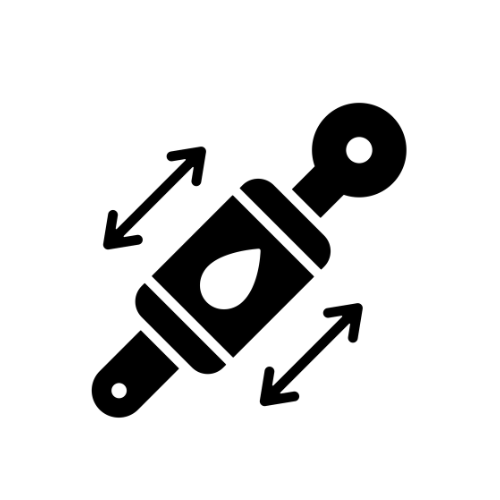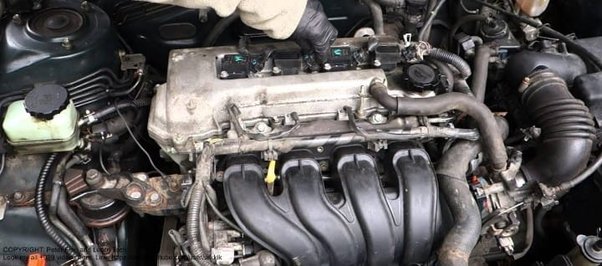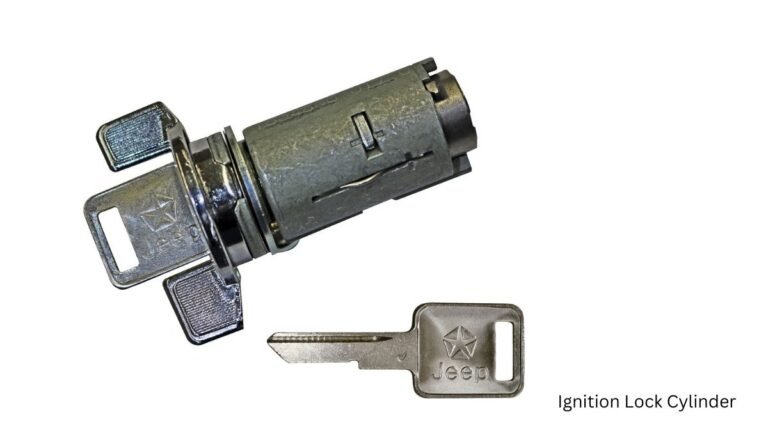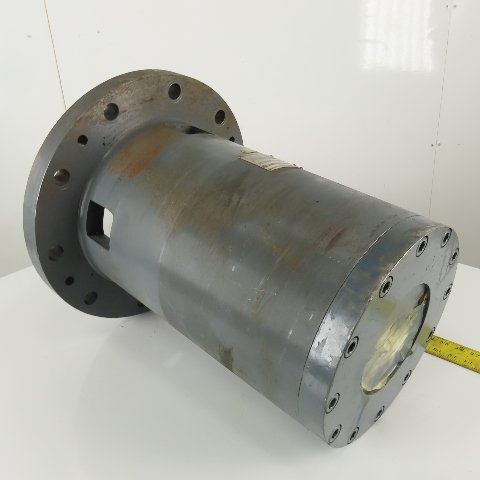Can I Drive With a Misfiring Cylinder? Risks & Tips?
Yes, you can drive with a misfiring cylinder, but it is not recommended for safety and engine health. A misfiring cylinder can cause performance issues, decrease fuel efficiency, and potentially damage the catalytic converter.
It is crucial to address the underlying issue causing the misfire promptly to prevent further damage and ensure optimal vehicle performance. Ignoring the problem may lead to more severe engine problems and potentially costly repairs down the line.
In this blog post, we will explore the implications of driving with a misfiring cylinder, the common causes of cylinder misfires, and the steps you can take to address and resolve this issue effectively.
The Basics Of Engine Misfires
Identifying A Misfiring Cylinder
A misfiring cylinder can be identified through symptoms such as rough idling, engine vibration, and a noticeable loss of power. Additionally, a diagnostic trouble code (DTC) scanner can pinpoint the specific cylinder that is misfiring, aiding in the identification process.

Common Causes Of Misfires
Several factors can contribute to engine misfires, including spark plug issues, fuel delivery problems, vacuum leaks, ignition system faults, and mechanical issues such as low compression. Regular maintenance, including timely replacement of spark plugs and inspection of the ignition system, can help prevent misfires.
Additionally, addressing fuel and air delivery concerns can mitigate the risk of engine misfires.
Potential Risks Of Driving With A Misfire
Driving with a misfiring cylinder may seem like a minor inconvenience, but it can lead to serious problems down the road. Some drivers may be tempted to continue driving with a misfire in order to save money on repairs or because they believe the problem is not serious.
However, there are several potential risks associated with driving with a misfire that should be considered before hitting the road.
Damage To Engine Components
A misfire can cause damage to the engine components over time. When a cylinder misfires, the unburned fuel can cause the catalytic converter to overheat, leading to premature failure.
Additionally, a misfire can cause damage to the spark plug, ignition coil, or other engine components. Over time, this can lead to more serious engine problems and costly repairs.
Safety Hazards While On The Road
Driving with a misfire can also pose safety hazards on the road. A misfire can cause the engine to run rough, resulting in decreased performance and reduced power. This can make it difficult to accelerate or maintain speed, especially when driving uphill or towing a heavy load.
In addition, a misfire can cause the vehicle to shake or vibrate, which can affect the driver’s ability to steer and control the vehicle. This can be especially dangerous at high speeds or in hazardous driving conditions such as wet or icy roads.
Driving with a misfire may seem like a minor issue, but it can lead to serious problems and safety hazards on the road. If you are experiencing a misfire, it is important to have your vehicle inspected and repaired by a qualified mechanic as soon as possible to avoid further damage and potential safety risks.
Immediate Actions To Take
If you have a misfiring cylinder, it’s not recommended to drive your vehicle due to potential damage. Immediate action includes diagnosing and resolving the issue before driving. Driving with a misfiring cylinder can lead to further engine problems and safety risks.
When To Pull Over
If you notice your car is misfiring while driving, find a safe place to pull over immediately. A misfiring cylinder can cause further damage to your engine if left unchecked.
Checking For Simple Fixes

First, check for simple fixes like a loose spark plug wire or a clogged fuel injector. Inspect the spark plugs and wires for any signs of damage. Also, ensure that the fuel injector is clean and free of debris. If you are unable to identify and fix the issue, it’s best to call for professional assistance.
Long-term Consequences
Driving with a misfiring cylinder can lead to long-term consequences such as damaging the engine. It can cause issues with performance and fuel efficiency, impacting the overall health of the vehicle. Addressing the problem promptly is crucial to avoid costly repairs.
Driving with a misfiring cylinder can cause long-term consequences that you might not be aware of. Ignoring the issue can lead to costly repairs and even harm to the environment. Below are some of the long-term consequences that you might face if you continue driving with a misfiring cylinder.
Reduced Fuel Efficiency
A misfiring cylinder can significantly reduce your vehicle’s fuel efficiency. When a cylinder misfires, it causes your engine to work harder than usual, which in turn leads to increased fuel consumption. This means you will have to spend more money on gas than you usually would. According to experts, driving with a misfiring cylinder can reduce your fuel efficiency by as much as 25%.
Increased Emissions And Environmental Impact
Driving with a misfiring cylinder can also have a negative impact on the environment. When a cylinder misfires, it causes the unburned fuel to enter the exhaust system, which can increase the emission of harmful pollutants such as carbon monoxide, nitrogen oxide, and hydrocarbons.
This can lead to smog and air pollution, which can harm the environment and contribute to climate change.
To summarize, driving with a misfiring cylinder can lead to reduced fuel efficiency, increased emissions, and harm to the environment. If you notice any signs of a misfiring cylinder, such as rough idling, decreased acceleration, or engine vibrations, it is best to have it checked by a mechanic as soon as possible to avoid any long-term consequences.
Diagnosing The Misfire
When your car is experiencing a misfiring cylinder, it’s important to diagnose the issue promptly to avoid further damage and ensure your safety on the road. Diagnosing the misfire requires the use of professional diagnostic tools and an understanding of error codes. Let’s explore these essential steps in more detail.
Professional Diagnostic Tools
Professional diagnostic tools are crucial when it comes to accurately identifying and resolving a misfiring cylinder. These tools provide real-time data and insights into your vehicle’s performance, allowing you to pinpoint the exact cause of the misfire.
With the help of these tools, mechanics can access the onboard diagnostic system and retrieve error codes, which serve as valuable clues in the diagnostic process.
Understanding Error Codes
Once the diagnostic tools have retrieved the error codes, it’s essential to understand their meaning and significance. Error codes are alphanumeric combinations that represent specific issues within your vehicle’s systems.
Each code corresponds to a particular problem, such as a faulty ignition coil or a clogged fuel injector. By decoding these error codes, mechanics can identify the root cause of the misfire and develop an appropriate plan for repair.
It’s important to note that error codes alone may not always provide a complete diagnosis. Sometimes, multiple error codes may be present, or a single code may point to various potential issues. In such cases, further inspection and testing may be necessary to accurately diagnose the misfire and ensure a successful repair.
Overall, diagnosing a misfiring cylinder requires the use of professional diagnostic tools and a deep understanding of error codes. By utilizing these resources, mechanics can efficiently identify the cause of the misfire and take the necessary steps to resolve the issue, keeping you safely on the road.
Repair And Maintenance Tips
If your vehicle has a misfiring cylinder, it’s not safe to drive it. A misfiring cylinder can cause damage to the engine and lead to costly repairs. It’s best to have the issue diagnosed and repaired by a professional before driving the vehicle to prevent further damage.
Repair and Maintenance Tips
DIY vs. Professional Repair
When dealing with a misfiring cylinder, car owners often wonder whether to tackle the issue themselves or seek professional help. DIY repair can be cost-effective, but it requires mechanical expertise. Professional repair, on the other hand, guarantees skilled attention but may come with a higher price tag. Consider your skill level and the complexity of the issue before deciding.
Preventative Maintenance to Avoid Misfires
Regular maintenance plays a crucial role in preventing cylinder misfires. Simple tasks like changing spark plugs, inspecting ignition coils, and monitoring fuel quality can help avoid misfires. Additionally, staying on top of routine tune-ups and addressing engine warning lights promptly can contribute to a healthier engine.
By being proactive, drivers can minimize the risk of cylinder misfires and prolong the lifespan of their vehicles.
Legal And Insurance Implications
Driving with a misfiring cylinder can have legal and insurance implications. It’s important to consider the safety of yourself and others on the road. Seek professional advice to avoid any potential legal issues and ensure your insurance coverage remains valid.
Driving With Known Vehicle Issues
Impact On Vehicle Insurance Claims
Legal and Insurance Implications
Driving with a misfiring cylinder can have serious legal and insurance consequences. Ignoring vehicle issues is risky.
Driving with Known Vehicle Issues
– Increases risk of accidents
– Violates road safety laws
Impact on Vehicle Insurance Claims
– May lead to claim denial
– Raises suspicion of negligence
Alternatives To Driving A Misfiring Vehicle
Driving with a misfiring cylinder can be risky and may lead to further damage to your vehicle. It is important to consider alternatives to driving in such a situation.
Here are some options to help you get around without putting yourself and others at risk:
Rental Cars And Temporary Solutions
- Renting a car is a convenient option for temporary transportation.
- Consider using a rental service for a reliable and safe vehicle.
- Temporary solutions like borrowing a vehicle from a friend or family member can also be helpful.
Public Transportation And Ridesharing Options
- Utilize public transportation such as buses or trains for your daily commute.
- Ridesharing services like Uber or Lyft are convenient alternatives.
- Ask a friend or coworker for a ride to work or other important destinations.
Conclusion
Driving with a misfiring cylinder can have serious consequences for both your vehicle and your safety. Ignoring the issue can lead to further damage to the engine and potentially leave you stranded on the side of the road. It is crucial to address the problem promptly by seeking professional assistance to diagnose and repair the misfiring cylinder.
Taking care of your vehicle’s maintenance will ensure a smoother and safer driving experience in the long run.

Our mission is to be your trusted resource for everything related to car cylinders.


